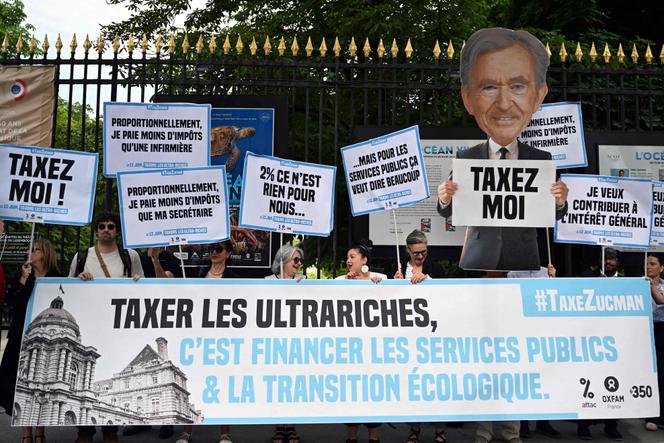


France's Sénat on Thursday rejected a draft law to make the ultra-rich pay at least a 2% tax on their fortune, as the government seeks to cut an alarming deficit. By suggesting the threshold, the bill's backers sought to put limits on any fiscal optimization or avoidance strategies the wealthy employ to minimize their tax bill.
The "Zucman tax" is named after French economist and director of the EU Tax Observatory Gabriel Zucman. The tax, he said, could raise around €20 billion per year by targeting 1,800 households.
"This measure is extremely targeted at extremely rich people, and especially at those, among those extremely rich people, who pay very little tax today," he said. However, the bill, opposed by Prime Minister François Bayrou's government, was rejected by a large majority in the upper house, which is dominated by the center-right. Only 129 senators voted in favor of the measure, with 188 voting against.
The law had been sponsored by Green members of Parliament and adopted by the lower house, the Assemblée Nationale, in February, thanks to left-of-center support, while the far-right Rassemblement National abstained. The proposed system would be "harmful to investors and to our financial resources," argued Finance Minister Eric Lombard in the Sénat on Wednesday. In April, the government announced plans to save €40 billion for its 2026 budget.
The tax proposal could be a "fiscal illusion" when it comes to the amount of savings Zucman expects, the governor of the Bank of France, François Villeroy de Galhau, told France Info on Thursday. According to center-right Senator Emmanuel Capus, the tax is also "totally confiscatory and violates taxation equality."
France has struggled to tame its finances. In March, the INSEE statistics institute reported that France's public deficit reached 5.8% of gross domestic product (GDP) last year, which was slightly better than the 6% that had been forecast. Yet that remains well above the 3% limit set for members of the eurozone. Bayrou's government is promising to get the deficit down to 5.4% this year, with the goal of getting back under 3% in 2029.
